There is much made of a tea’s geographic designation, its altitude, its harvest season, and its growers…and there should be! The earth, the temperate surroundings and the handlers and coaxers of the leaves are to be thanked and acknowledged.
Every effort and breath within the mountains and forests, every little build up to harvest time matters. Harvesting for the purists is a time not simply when leaves are clipped. It is the moments/days/months before, watching how bushes and trees form, grow, develop or wither. It is also vital to study the leaves and plants post-harvest to see how the leaves have faired.
A sip can bring this all to mind, or simply bring into focus the flavonoids and chemistry that moves the senses. Pu erh tea particularly is one that deserves some understanding from start to finish because it is such a simple and sometimes inconsistent process.
Pickers, and particularly those who are part of old clans that have been ‘at the leaf’ for generations are bound to this end-result-first sip moment. Their piston-like picking may not appeal as art but their abilities to instantly recognize what to pick (if at all), when to pick and then slice it off with a quick slit of a fingernail do bear acknowledgement and some praise.
Usually women – though not always – make their way through the soft round loamy hills, and feeling the textures and soil. They know what days and times might not be ideal for the removal of a leaf from its stem. It is often they, who will understand why leaves may wither or wilt, or indeed why they might thrive. Bun from the Wa people once remarked, “Of course I know the leaves. They are children and there are very few days that I am not beside them”. This brings the difference of machine vs hand picked harvests into close focus as well. Machines simply don’t do well in terms of discernment or exact location to cut the leaves from stems. They don’t do well with the feel of a leaf. Hands, and particularly those in the indigenous forests of southern Yunnan province have never had machines to pluck or cut and they view such instruments as brutal instruments of trauma.
A focused and learned picker can tell when a tree or bush’s roots are not draining well just from looking at the leaves and stems. It is one of the great and deadly plights of a tea plant when moisture gathers at the roots without an exit point and so there must be a kind of immediate interpretation and that interpretation is done by one who knows the soils intuitively. As many of Yunnan’s old gardens and forests become the target of larger tea companies wanting to put a brand name upon a particular mountain, or region, minimum harvest targets and increasing yields means that some of the forests’ inherent sustainable model are disappearing. Pickers are more than simply removal agents of the green stimulant gems; they are the witnesses and monitors of the lands and forests.
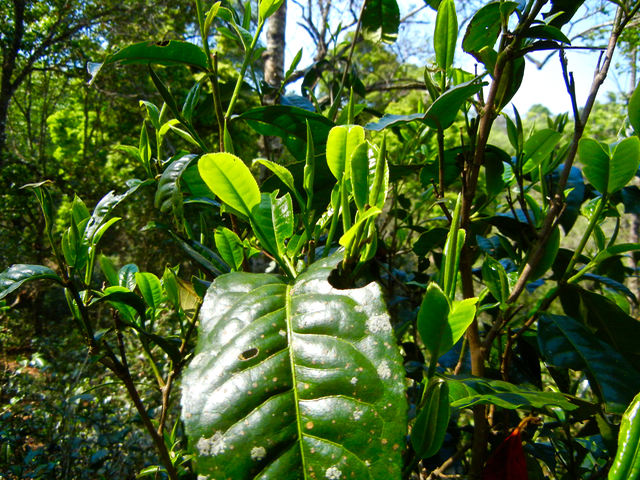
Harvesting is knowing about not only the correct time, but which bushes and trees to pick from and about the intensity of the picking itself.
The much used word “sustainability” can also be credited to the pickers and indigenous, for it is they who can and often do decide not to pluck from certain trees or bushes, deciding instead that the bush is stressed and should rest. “Ama” a Hani matron who I’ve spent time with in the tea mountains of southern Yunnan also reminds that it isn’t simply a case of picking all leaves in sight. Plucking is an ongoing observation period and study of something that is obsessed over. All of this takes place in tandem with the singing and rampant conversations that seem to accompany all harvests. Work with song within the leaves.


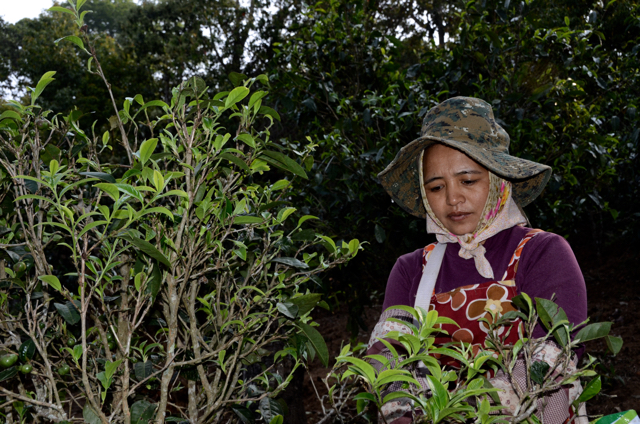
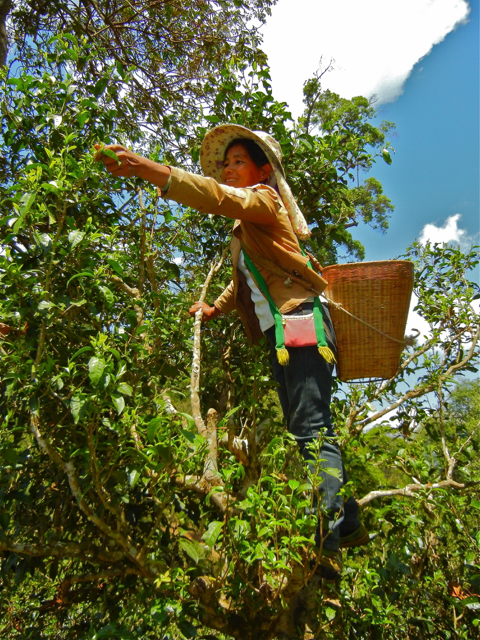
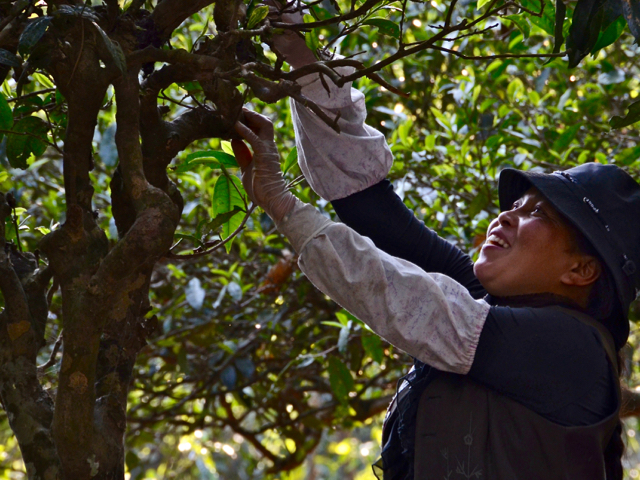
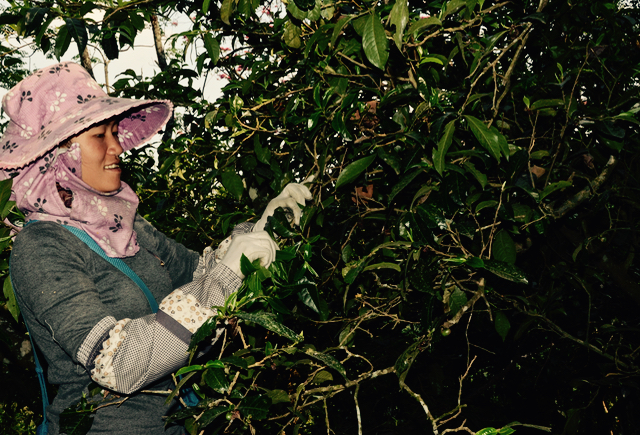
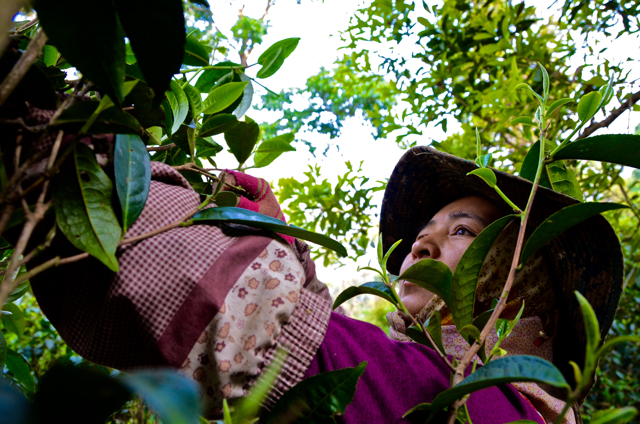
Always fascinating to read – would be curious to hear the songs they sing when plucking the tea.
Ahhhhh….it is high pitched chatter and the odd formidable note. No dark notes here.
I much enjoyed your lecture at RGS with IBG really interesting and I would have loved to hear more stories I.e the nomads and the wolves I have been to Stanfords to ask about your book but they don’t have any in stock. Amazon has it for £60+ which is frankly outrageous. I asked at RGS on Mon and they suggested writing to you in the hope that more books will be on the way! Have you any other books with your marvellous photos. I go on safari whenever I can in Africa and India and I get a lot of satisfaction from a successful shot!
Perhaps you could let me know. Many thanks
Hi Carole and hope this gets through.
Thanks for the note – sent you an email in response.
best,
Jeff